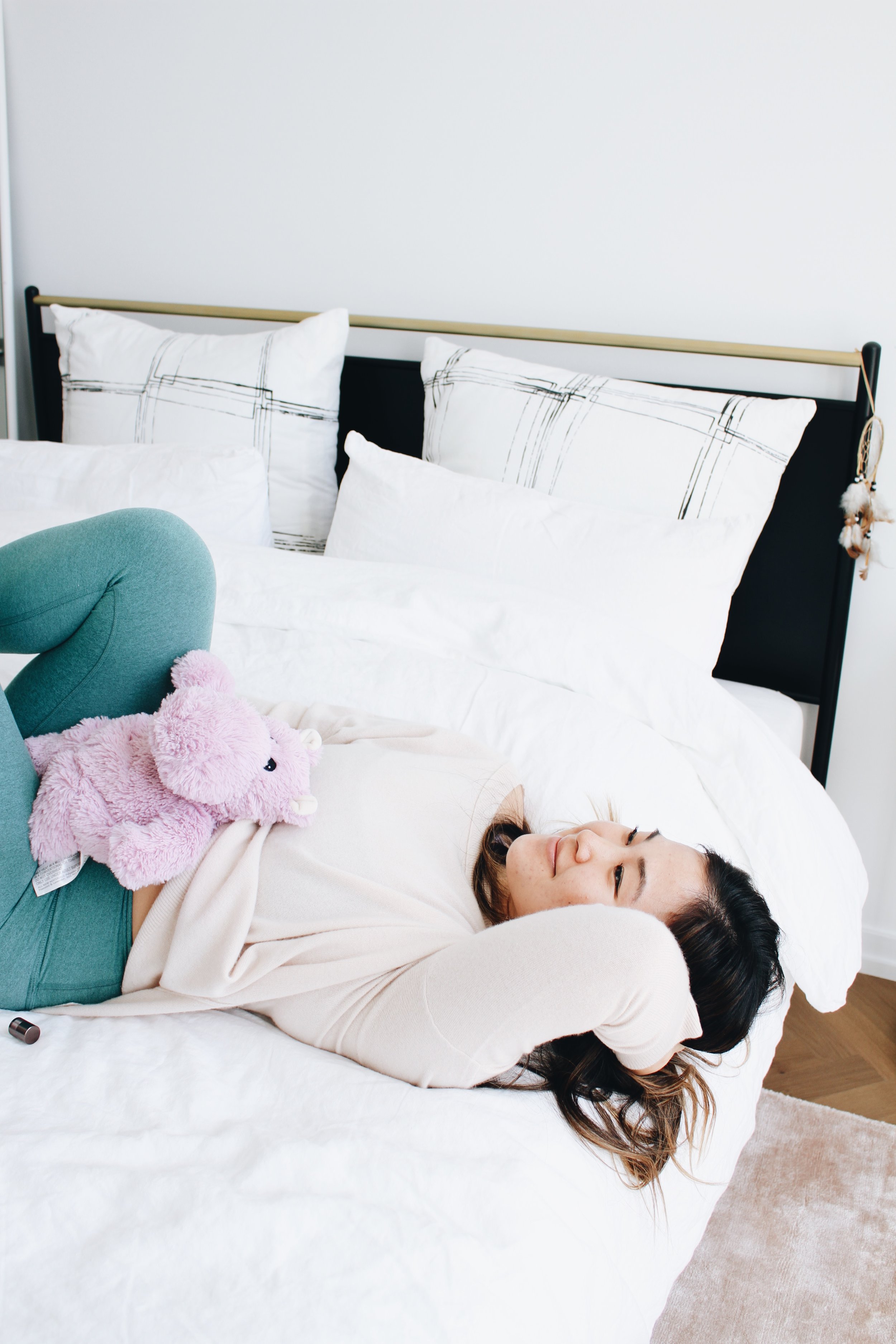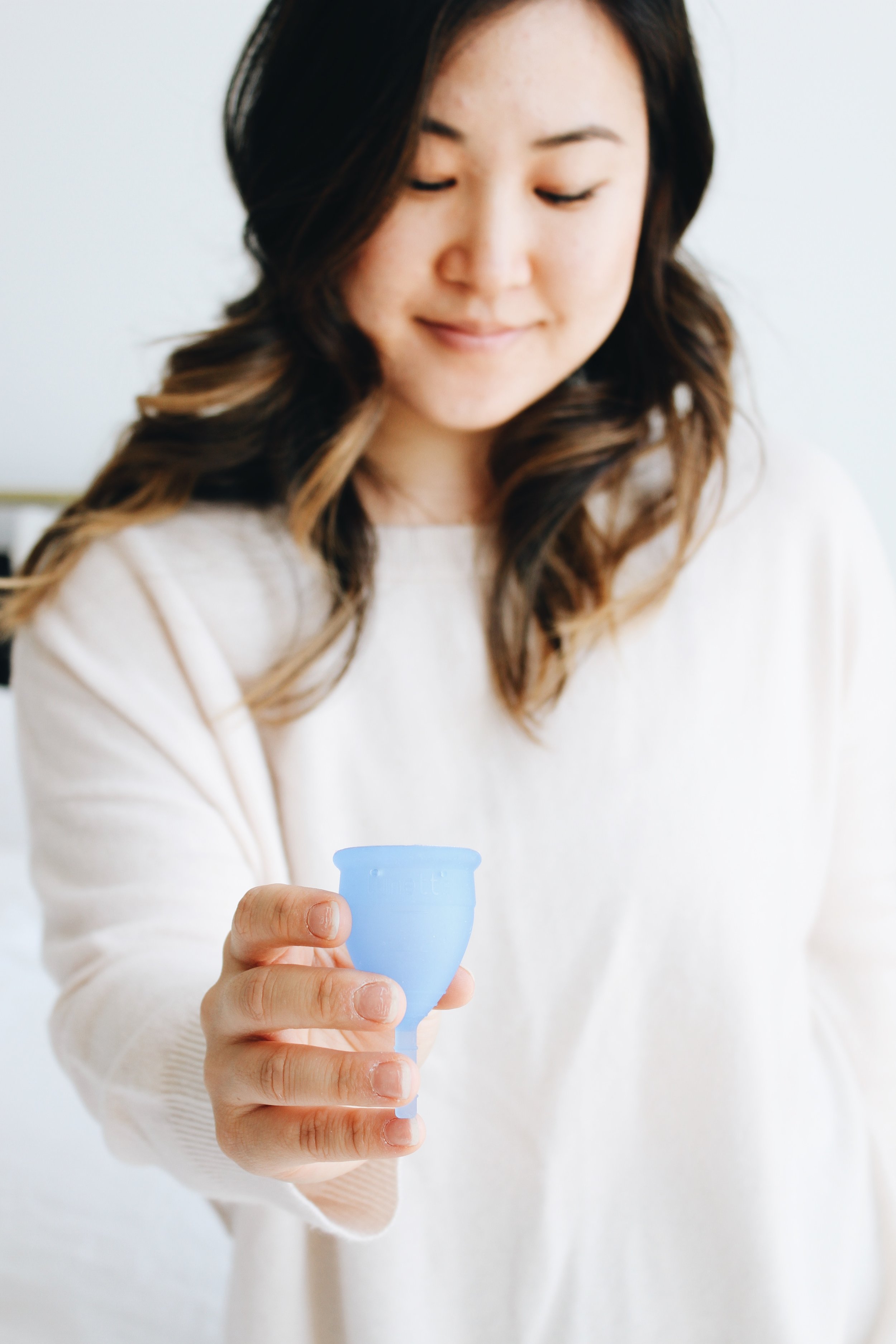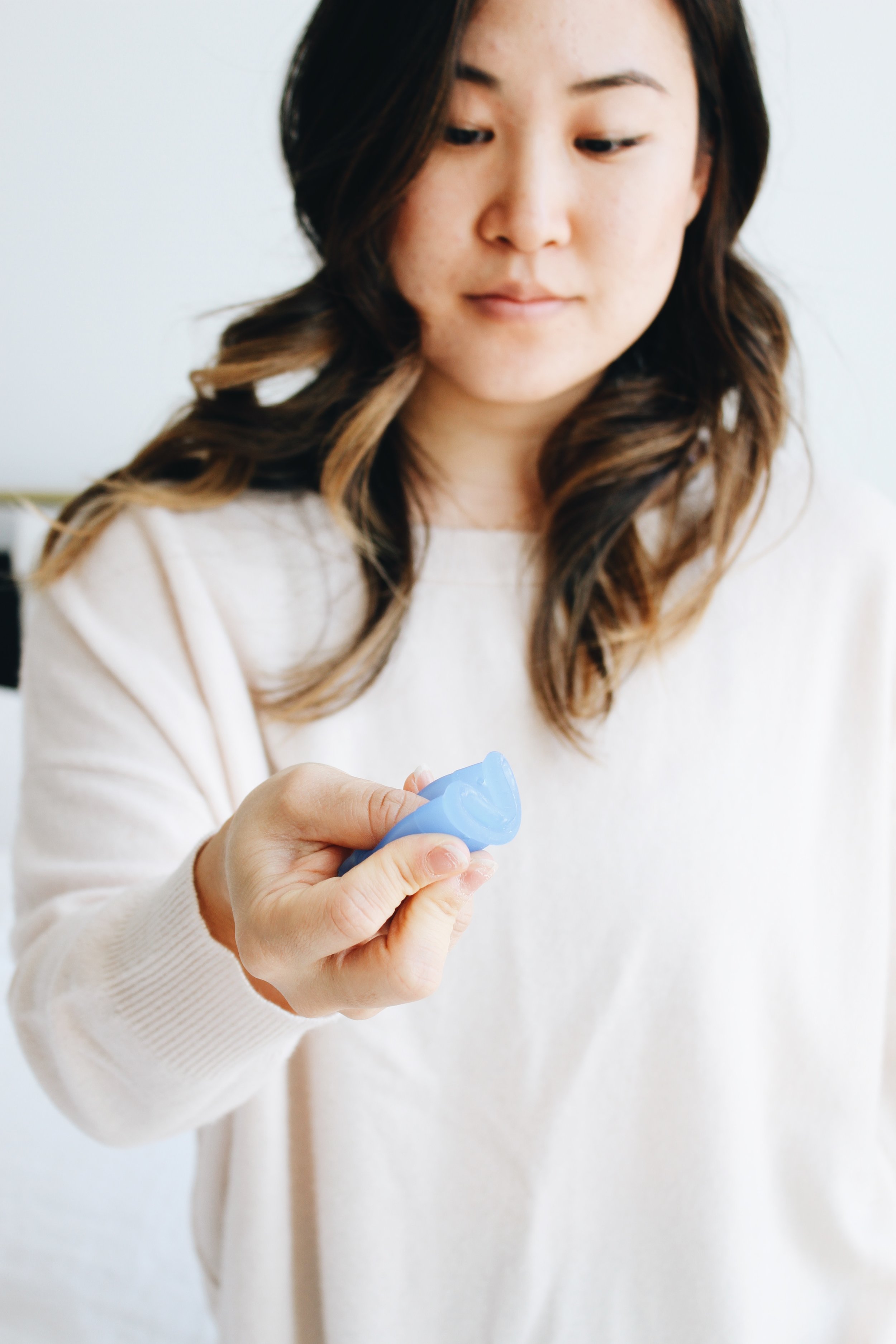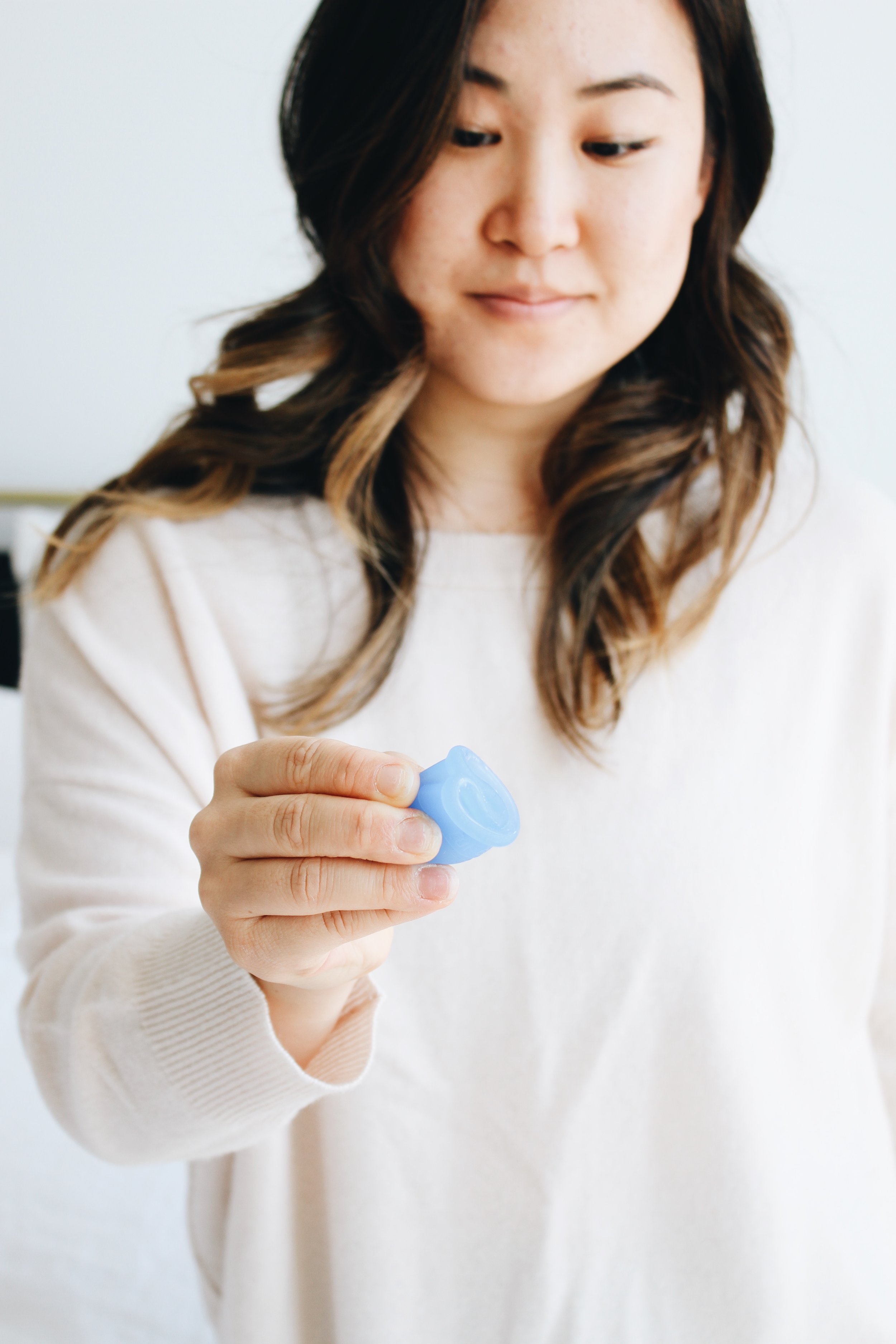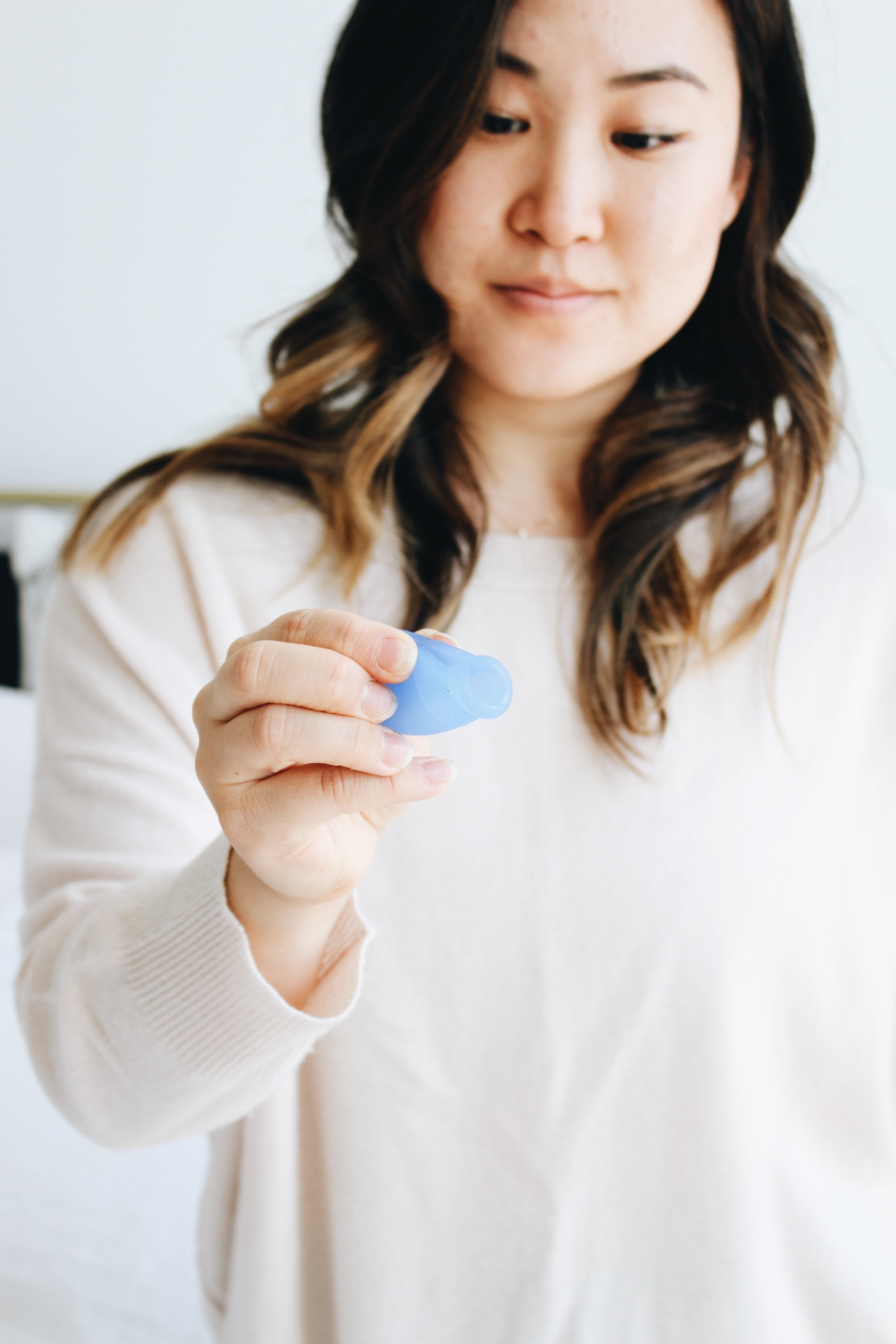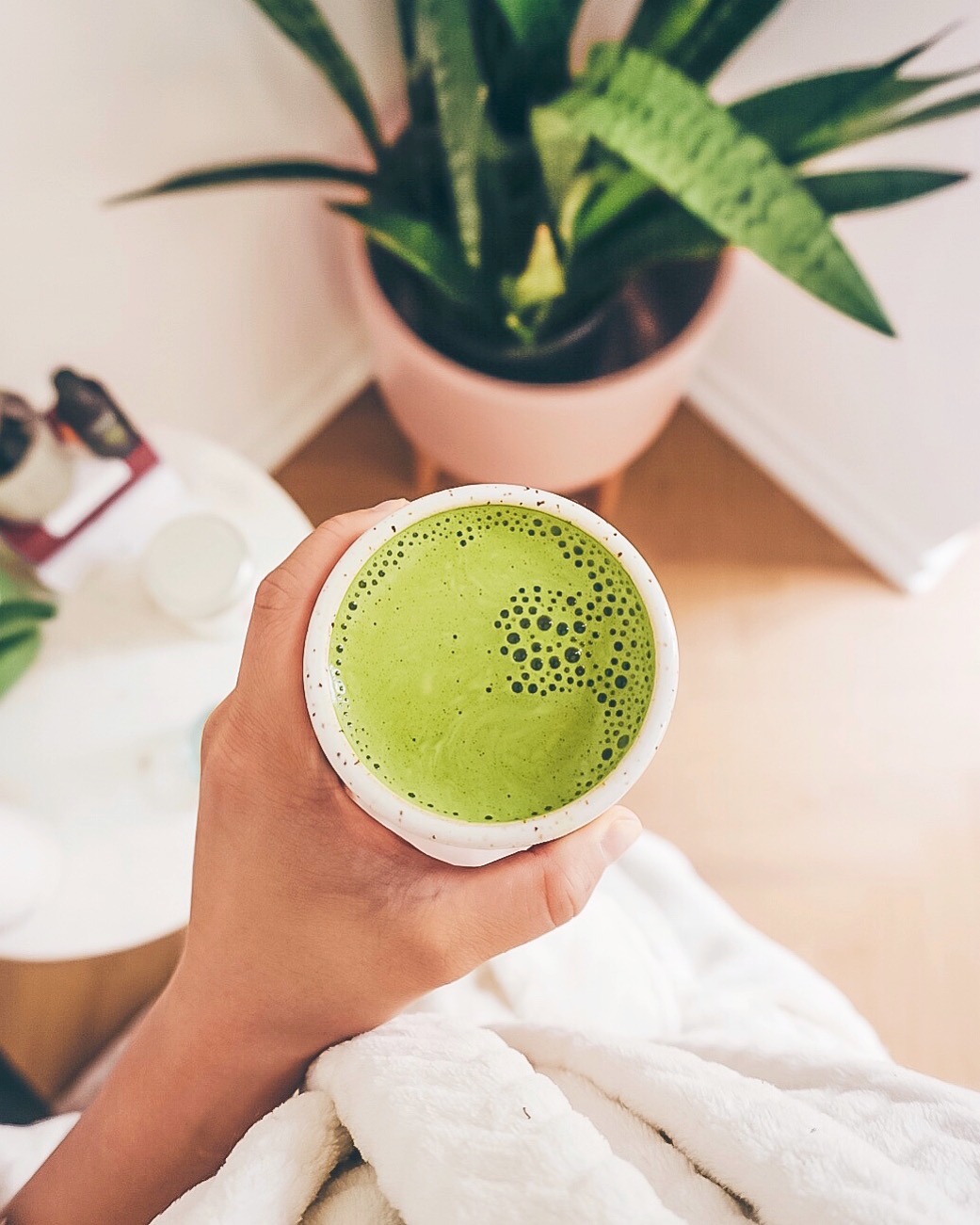All about Menstrual and Reproductive Hormonal Health
I'm sure my mother is going to be a little shocked somewhere because I'm about to say the word "period" and "menstrual" and "uterus / vagina" about a million times in this blog post, but that's exactly the point. To little fault of her own, but rather the societal culture around us (particularly in our generation), women's reproductive health and menstrual cycles were never something to be talked about openly without some sense of shame and an "ew gross" attitude around it. Because of these stigmas, I felt the same way and I failed to understand my cycle, my hormones, and my reproductive health in a real way until my mid-twenties.
To be honest, that seems baffling in retrospect, no? How did I not understand one of THE most foundational aspects of my body that affects everything from my hunger, mood, energy systems, skin, and my ability + choice to have or not have kids? How did I let society tell me that the functions of one of the coolest parts of my body is "gross?" I don't want future generations of girls to grow up the way I did, having to learn how my period works through an American Girl book (which apparently still exists), using toxic tampons, having no idea what the difference between my follicular and luteal phase is, and having shame around period care without realizing what exactly is happening to their bodies.
To be honest, this topic is so expansive that I A) can't cover the entire breadth of it without writing a full-on book and this is supposed to be a blog post you guys can read on a subway ride or lunch break B) I am not a doctor or professional in this area of health-- so what I'm going to do for you guys today is share my very best tips, tools, and links to help further your education and hopefully empower you guys to better understand your body.
I still have so much to learn too, but this is everything I've been learning, step-by-step over the past several years. I'm going to divide this up into BASICS, PERIOD CARE, BIRTH CONTROL + REPRODUCTIVE HEALTH.
I've partnered with the amazing Lunette Cup for this blog post, as they've been integral to my comfort around my period + period care, and they as a company work to dispel period shame, educate about reproductive health, and are inclusive of anyone with a period (not just women). Can someone say yaaaaas?
When I first heard the word "luteal" I thought it referred to fruit and produce, I'm not kidding. I didn't even know that "Day 1" of your cycle meant the first day of your period (I thought it was after)-- so don't be embarrassed if you are the same way! Never too late to learn.
WHAT IS A CYCLE
Your cycle lasts about 29 days on average, but it totally varies for each woman. Mine have been longer or shorter throughout my health fluctuations. A cycle has two main phases, follicular and luteal. Follicular is basically the first half that leads up til ovulation, then luteal begins the minute you ovulate. Your egg hangs out for 12-24 hours as soon as it's out, and that's when the fun progesterone game begins... which leads us to hormones!
HORMONES
Here is the rundown of how your hormones fluctuate during your cycle, which is what is behind all of the changes your body experiences throughout your cycle:
Estrogen: It gradually elevates in the first two weeks of your menstrual cycle (which is also known as the follicular phase). The rise in estrogen is what causes your uterine lining to build up (essentially to "build a house" for a baby) and prepare your body to ovulate (produce an egg). You will also likely experience an increase in sex drive as it leads to ovulation (because evolution wants you to procreate, and well, that's how you do it). But once you've ovulated, your estrogen dives off a cliff because it has "done it's job," but then elevates slightly again before dropping off if there is no preganancy post-ovulation.
Progesterone: Think of it this way- "pro-gestational." It's the hormone that wants to make your uterus into a womb 😂It begins to elevate right before ovulation and continues to do so-- with that it comes elevated body temperature (basically preheating the oven that is your body, for a baby), and all the wonderful PMS symptoms (hello acne, boob aches, bloat and cramps). But if pregnancy doesn't occur, your progesterone starts to plummet along with your estrogen. This is what causes your uterine lining to shed aka your period. If you want a laugh, this is the best metaphor for your cycle ever.
Luteinizing Hormone (LH): This hormone makes you ovulate. It's relatively low and hangs out the entire cycle in the background but jumps in to the spotlight by surging for 1-2 days to make you ovulate.
Then here are some resources on how these hormones affect everything from appetite, training, energy levels, and so forth.
How your cycle affects your training by Girls Gone Strong (there are 2 more parts in this series)
Did you know that your strength, recovery abilities, and energy output vary throughout your cycle? Sometimes it's better for your body to recover and do gentle yoga, and other times you should take advantage to kill that PR in your spin class or barbell squats
How your cycle affects your skin by Natural Cycles
Woman Code by Alissa Vitti
A good introductory book on your cycles, what you can eat and do to support each part of your cycle, and understanding the basics of hormonal health
PERIOD HYGIENE
Let's talk about it. I used to scurry into the "feminine products" aisle and rush to check out, lest anyone see that I was buying tampons and how dare anyone find out I was on my period! I think that our squeamishness around periods for a lot of us center around not our fear of blood, but rather that somehow there has been a stigma of "uncleanliness" or "grossness" around a perfectly natural thing. I thought the concept of using pads was disgusting because that meant things got messier.
Well, I'm clearly past it now that I use my Lunette cup. But before we get to that, I need to explain my process leading up to the cup because I certainly understand the apprehension/grimacing/fear that can come up about it. Why? Because even just last year, I thought the cup was a nice theory but not for me because I couldn't imagine having to get all up in there.
TOXIC TAMPONS ➡️CLEAN TAMPONS ➡️PADS ➡️LUNETTE
I used tampax pearls the day I got my period up until 3 years ago-- thankfully my mom had the good sense to not let me use the one with added fragrance. Being a naive 15 year old, I never thought there was anything but cotton in those tampons. Little did I know how many harmful chemicals I was allowing to be in my freakin vagina all day long, for several days, every month. After switching over to all natural beauty products, I thought to myself one day, why am I not using natural tampons? Thus the switch over to clean tampons.
After a lot of hormonal struggles because of my Hashimoto's and thyroid and getting off the pill, I was experiencing a lot of really bad cramps. I noticed that they eased up for me whenever I wasn't wearing a tampon, so I decided to give clean pads a try during nights despite my squeamishness about it being messier than tampons.
This combo was great for awhile until I was going through a phase of extreme hormonal imbalances when I was getting my period every 2 weeks (yup, isn't that fun?) and going through an insane amount of tampons and pads per month. Not only was it SO expensive to keep up, I also was trying to cut down on my waste by composting in my kitchen and not using plastic as much as possible-- so I started to feel some ethical internal conflict.
I saw that several of my friends were using cups and I had already read such good things about them online, so I decided to give Lunette a try.
USING A MENSTRUAL CUP
Not going to lie, there was not only a physical learning curve but also a mental one when it came to learning to use the cup. But the 3 main reasons why it's SO worth it to me is:
A) It got me more comfortable and confident with my own anatomy and made me realize there is zero reason to be squeamish about or grossed out by periods.
B) I think about the literal thousands of boxes of tampons and pads I'll be saving from landfills and it makes me really happy. I also don't have to pack a million tampons in my suitcase when I travel or worry about not having access to non-toxic tampons.
C) I. Save. So. Much. Money. Let's not get started on the tampon tax issue too and how ridiculous it is how expensive pad and tampons are. But yep, one Lunette cup is all I need!
Lunette has a very clear guide on using a menstrual cup (along with FAQ's, using it with an IUD, the different folds [I found the c-fold easiest, but some people prefer the punch down or 7 fold]). It definitely took me a few times to get used to adjusting the positioning, and DON'T try to remove it by pulling it on the end without pinching the bottom (and without pinching yourself...), and it was definitely a bit of a shock to get that up close with your period. BUT you quickly get used to it and over it, because really, it's not a big deal. It also can stay in for up to 12 hours which is amazing, so no worry of TSS!
PMS MANAGEMENT
There are a few big things you can do to help ease PMS symptoms (exercise, good sleep, lots of water, avoid sugar and eat warming foods), but then some of us need a little extra help. My estrogen and progesterone levels don't rise and fall the way they should and as a result, sometimes I can get EXCRUCIATING cramps to the point where I can't sit up straight and can only find relief while laying down. That's when these aids come out:
Harry the Hippo: Bless the soul that created this cute nugget that is not only cuddly but is a heating pad! He's filled with grains and lavender, and you just pop him into the microwave for a minute (I know it's disturbing to microwave that cute face), and I tuck him into the waistband of my pants. Lifesaver.
Warm Epsom Salt baths: Warm water helps alleviate cramps and the magnesium in epsom salts. I love Dr. Teals lavender.
Magnesium Supplements: I don't have a bathtub anymore so these magnesium supplements help me for that same effect-- did you know this is also why your body craves chocolate on your period? It's craving magnesium!
CBD oil: I'm working on an entire post about this but I've been using it for several months and yes there isn't research done on this really yet to my knowledge, but from a personal standpoint, it's helped leaps and bounds with many of my symptoms.
Essential oils: I use Saje's moon cycle (specifically meant for this time of the month) to rub on my belly. Major soothing vibes during an uncomfortable time.
Infrared Saunas: This helps my body's natural detoxification systems by sweating it out-- and oftentimes when I feel too low energy to workout intensely enough to get a good sweat on, I like to jump in an infrared sauna. I go to HigherDose here in NYC!
Oh birth control. I really could go on and on about it as it's such an expansive topic and controversial on all sides of the argument. Ultimately, I say just do you-- just arm yourself with as much information about your options to figure out what is best for your needs and your body.
So what I'm doing in this section is sharing the methods I use, along with some resources and information on reproductive health.
NFP (NATURAL FAMILY PLANNING) + BIRTH CONTROL
If you're like me when you first heard that term, you were probably like wow A) I'm not family planning and B) sounds like something from the era of midwives boiling hot water. To be honest, thought B is kind of accurate in the sense that natural family planning (or also called the Rhythm Method) has been around for ages. It just hasn't resurged in popularity until recently because we now have such great technology to improve the effectiveness of it.
I started using Natural Cycles to track my period cycle and fertility because I really didn't want to use any hormonal birth control with all my hormonal issues, and the copper IUD just didn't feel like the right option for me in my life right now. It has been amazing in teaching me about my personally quirky cycle-- every morning I take my basal temperature and plug all my info into my app, then it uses my history and their data to compute fertility and track where in my cycle I am. Even with my still irregular cycle, it's shockingly accurate. Then, I use condoms to prevent STD/I's and preventing pregnancy.
Getting off the pill? My friend Jules wrote a great article all about her experience.
Other good resources for birth control education:
Birth control options-- by SELF and Healthline and Planned Parenthood
Sexual health + birth control Q&A with a doc via goop
All about the IUD via Time
TALKING TO YOUR DOCTOR + REPRODUCTIVE HEALTH
I'm including this section because I had a few followers mention the difficulty in speaking with their doctor about their hormonal or health issues. I understand it can be uncomfortable to talk about and unfortunately there are some doctors out there that don't make it easy to talk about (or make you feel judged), but my best advice is to A) find a doctor through a trusted friend or good reviews and B) remember that you can't get the help you need if you don't ask.
A lot of the times, we play down things that we feel embarrassed about-- people lie about how many drinks they have to their doctors and trainers, people lie about their sexual activity to their doctors, or we also play down our symptoms and pain for fear of looking crazy. We can't control how other people will react, but a professional can't help you if you only give them half the information-- they're going to bark up the wrong tree otherwise to help you, and that helps no one in the end. Don't be afraid to talk their heads off and tell them every single pertinent thing about any symptoms you're experiencing, what you want out of this visit, or the way you feel in your gut instinct.
Another thing too I would say is to arm yourself with information and specific questions to ask-- then write them down, and don't stop asking your doctor until you get a satisfactory answer or a referral out.


